Investment Strategy
The fund management focuses on companies with convincing structural growth and high long-term earnings. These companies are based in the euro area, but often operate globally. Based on fundamental stock selection, companies are selected that achieve sustainable growth over long periods of time with high profitability. Investments are made primarily in large caps as well as high-growth smaller and medium-sized stocks. The decisive criteria for these business models are high entry barriers, end markets with structural growth and excellent management teams.
- Concentrated portfolio of about 50 stocks
- All cap approach, i.e. exploiting investment opportunities across all market segments
- Long-term investment horizon and therefore low portfolio turnover
- Benchmark-agnostic approach
Learn more about our investment philosophy in equity fund management
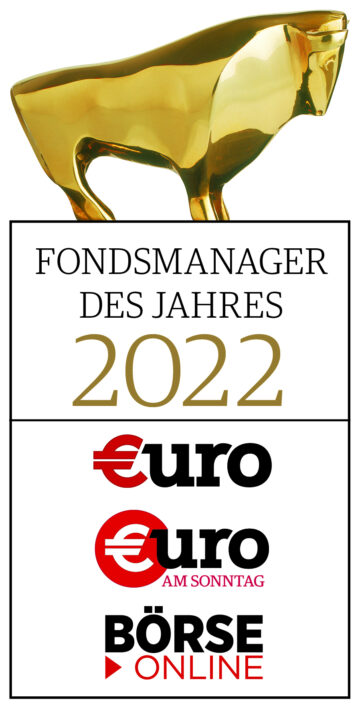
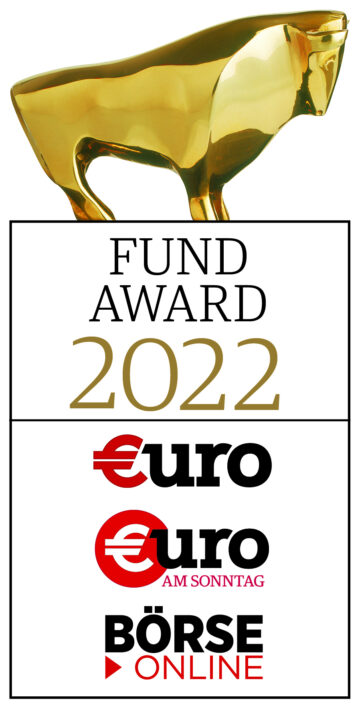
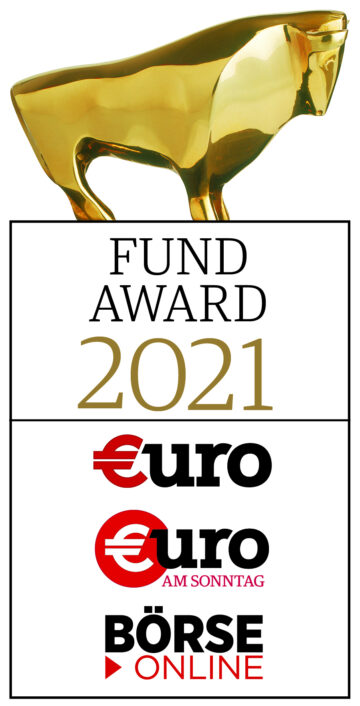


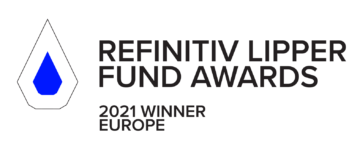
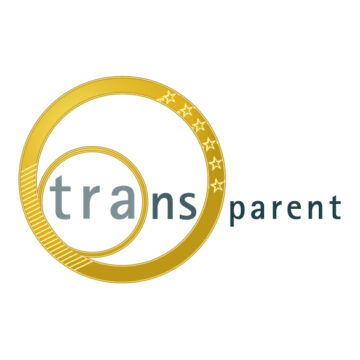
Fund data
| ISIN | LU1637618403 |
|---|---|
| WKN | A2DVQG |
| Inception date | 02.10.2017 |
| Issue price (27.03.2025) | 136.88 EUR |
| Redemption price (27.03.2025) | 130.36 EUR |
| Fund volume | 44.12 Mio. EUR |
| Share class volume | 20.02 Mio. EUR |
| Currency Fund / Share Class | EUR / EUR |
| Minimum investment | - |
| Asset Manager | Joh. Berenberg, Gossler & Co. KG |
| Management company | Universal-Investment-Luxembourg S.A. |
| Custodian | BNP Paribas S.A. Niederlassung Deutschland |
| Use of income | Accumulating |
| End of financial year | 31.12. |
| Registration and Distribution | DE, AT, FR, CH, IT, LU, LI, ES |
| SFDR Classification (Sustainable Finance Disclosure Regulation) | Article 8 |
Costs
| Issue surcharge | Up to 5.00% |
|---|---|
| Flat-rate fee p.a. | 1.56% |
| Total Expense Ratio (TER) p.a. | 1.87% |
| Performance fee | none |
Chances and risks
| Chances | Risks |
|---|---|
| High return potential of stocks over the long term | High susceptibility of shares to fluctuation, price losses possible |
| Development of growth stocks occasionally above average | Share value may fall below the purchase price at which the customer acquired the share |
| Development of mid – cap stocks above average in certain phases | Below-average development of growth stocks possible at times |
| Possible additional earnings through individual value analysis and active management | Below-average development of second-line stocks possible at times |
| No guarantee of success for individual value analysis and active management | |
| Concentration risk through focusing on investments in eurozone countries |
Further details on the opportunities and risks of this fund can be found in the sales prospectus.
Indexed performance
Performance in 12-month periods
Monthly performance
| Year | Jan | Feb | Mar | Apr | May | Jun | Jul | Aug | Sep | Oct | Nov | Dec | YTD |
|---|---|---|---|---|---|---|---|---|---|---|---|---|---|
| 2017 | - | - | - | - | - | - | - | - | - | 3.00 | -1.38 | -0.13 | 1.45 |
| 2018 | 2.84 | -3.30 | -1.39 | 3.82 | 3.32 | -0.94 | 1.09 | 2.66 | -2.26 | -10.14 | -2.40 | -7.20 | -13.97 |
| 2019 | 9.44 | 2.46 | 2.85 | 5.43 | -3.67 | 6.98 | 1.84 | -3.62 | 1.13 | 3.69 | 6.01 | 2.45 | 40.07 |
| 2020 | -0.13 | -6.20 | -11.27 | 10.28 | 8.32 | 4.51 | 0.00 | 4.11 | 1.39 | -5.59 | 12.08 | 7.09 | 24.11 |
| 2021 | 0.49 | 1.11 | 1.70 | 4.03 | 2.40 | 3.17 | 2.74 | 5.41 | -5.50 | 4.32 | 0.16 | 1.36 | 23.09 |
| 2022 | -13.01 | -5.91 | -0.65 | -6.31 | -2.63 | -9.05 | 12.87 | -7.65 | -6.36 | 2.72 | 6.28 | -5.26 | -31.88 |
| 2023 | 9.30 | 0.70 | 1.30 | -2.57 | -0.86 | 1.30 | 2.07 | -6.50 | -7.01 | -7.14 | 10.06 | 4.37 | 3.26 |
| 2024 | 1.09 | 2.94 | -0.47 | -6.15 | 0.35 | 0.88 | -2.32 | 0.87 | -0.71 | -4.14 | 0.78 | 1.67 | -5.46 |
| 2025 | 7.70 | 0.32 | - | - | - | - | - | - | - | - | - | - | 4.95 |
Source: Berenberg, Management company
The charts and tables regarding performance shown here are based on own calculations according to the method developed by the German Investment Funds Association (BVI). They illustrate past performance. Future performance can deviate both positively and negatively from these calculations. Gross performance (BVI method) takes into account all charges at fund level (e.g. management fee), net performance plus the issue surcharge. Additional charges can arise for individual investors (e.g. custody account fees, commissions and other fees). Model calculation (net): An investor wants to purchase fund units for EUR 1,000 EUR. Considering a max issue surcharge of 5.00% he has to payEUR 50.00 for the purchase. Also, fees may be charged for the administration of the safe custody account, which will lower the performance. Past performance is not a reliable indicator of future performance.
Performance after issue surcharge
| 1 year | -4.26% |
|---|---|
| 3 years | -13.31% |
| 5 years | 32.28% |
| since inception | 30.36% |
| Max. Drawdown 5 years | -41.26% |
Source: Berenberg, Management company | State: 27 Mar 2025
Risk figures
| Volatility - 1 year | 15.49% |
|---|---|
| Volatility - 3 years | 18.12% |
| Sharpe Ratio - 3 years | -0.39 |
| Maximum Drawdown - since inception | -41.26% |
Currencies
Sectors
Countries
Asset classes
Top Holdings
Monthly market comment
European equities once again outperformed US equities, although much had already been priced in. A possible US economic slowdown in Q2 and trade disputes noticeably increased volatility. The Berenberg Eurozone Focus Fund was unable to outperform its benchmark. ASM International presented good quarterly figures that exceeded analysts' forecasts, but disappointed in terms of incoming orders, which was due to a decline in China. At ASML, reports about possible tightening of US trade restrictions caused ongoing uncertainty, which led to share price declines. Interpump fell sharply in response to the weak results of the previous quarter. Prosus' share price was driven in February by the rise in Tencent, in which it holds a 24% stake. Following strong figures for the third quarter, Do & Co's share price continued to rise. Good figures for the past quarter led to further gains in the Siemens share price. We opened a position in Heidelberg Materials in February as we anticipate rising demand in Europe and believe the company is very well positioned for this.
Portfolio Management
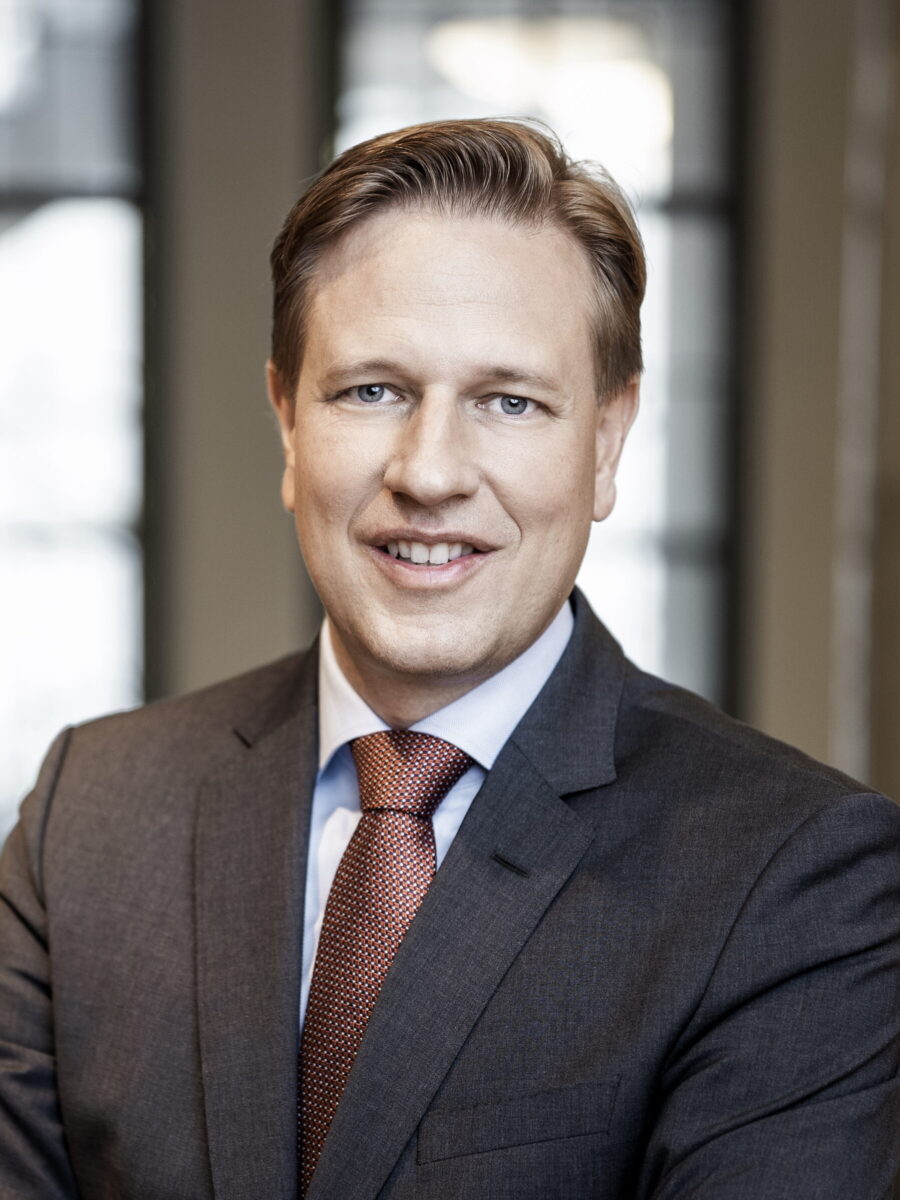
Matthias Born
Matthias Born has been CIO Equities since 2017 and Head of Investments of Wealth and Asset Management since 2019. He started his career in 2001 at Allianz Global Investors (AGI), where he managed portfolios for European Small Caps, European growth stocks and German equities from 2002 to 2017. In his 16 years at AGI, he has built two very successful equity franchises and was responsible for client assets in the double-digit billions. Matthias Born has an excellent track record over two decades and received several awards for his outstanding and consistent performance. He studied at the University of Wuerzburg and holds a degree in Business Administration.
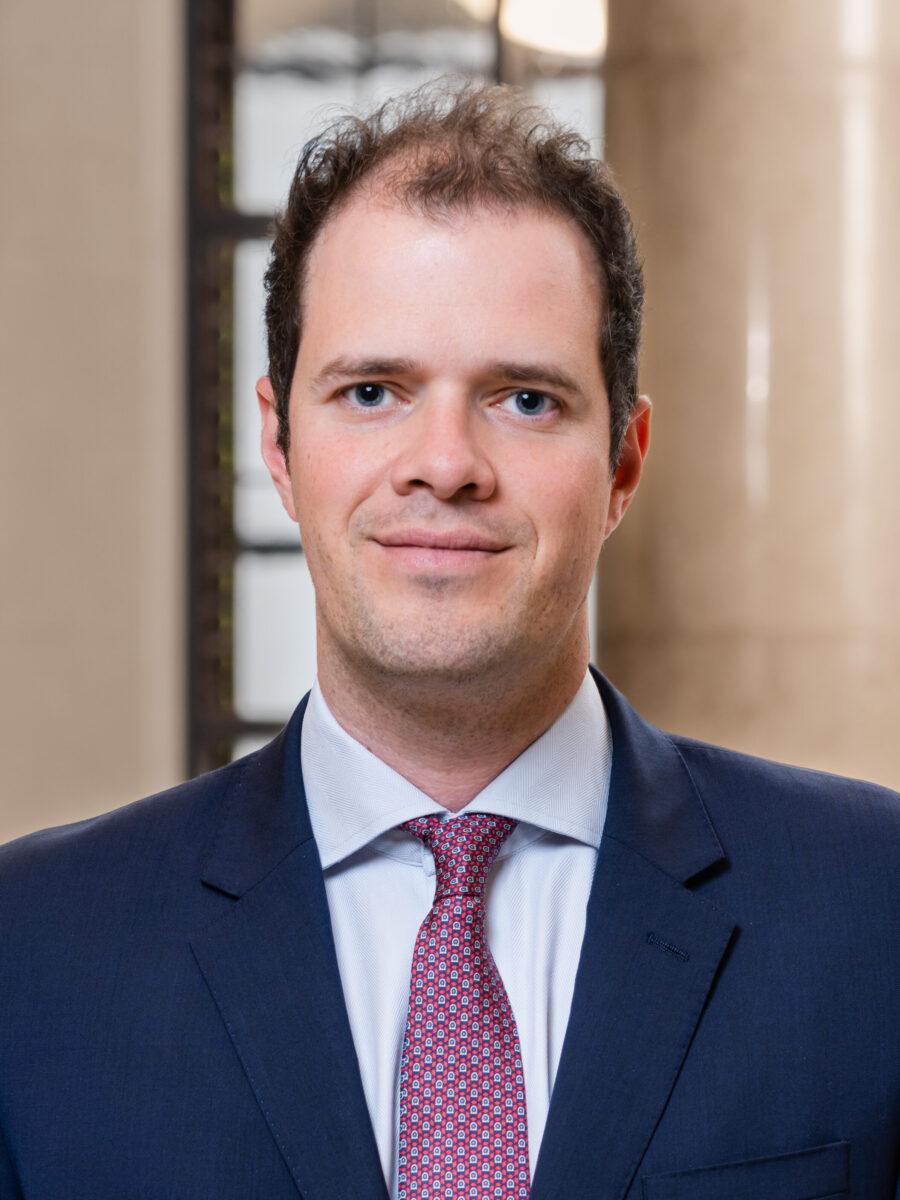
Oliver Fritz
Oliver Fritz has been a Portfolio Manager at Berenberg since July 2017. Before joining Berenberg, Oliver Fritz worked in the Securities Division of Goldman Sachs, covering German-speaking equity and multi-asset clients. He started his career as a Sell-Side Sales at Mainfirst Bank. He holds a Bachelor's degree in Economics from Maastricht University and a Master's degree in Finance and Management from St. Andrews University.

Christian Korth
Christian Korth has been a Portfolio Manager at Berenberg since June 2024. Before joining Berenberg, Christian Korth worked for the Droege Group as a portfolio manager for liquid assets (equities, bonds) as well as private equity and venture capital. Prior to that, he was a senior equity research analyst at HSBC and Stifel. He holds a Diploma degree in Finance from Frankfurt’s Goethe University.
Consideration of ESG Elements
Identifying companies and business models that will be successful in the long term is the basis for good investment decisions. Environmental, Social and Governance (ESG) factors are key factors in decision making and are therefore integral
components of the investment process.
CO₂-Intensity
The fund does not actively manage its carbon footprint, however, emissions data such as CO2 intensity are relevant parameters which can be used to assess the efficient management of a company and the extent of transition risks.
ESG Score
The data provider MSCI ESG uses an ESG score of 0 to 10 to assess the management of material ESG risks of portfolio holdings compared to competitors.
ESG Controversies Screen
Investments in the fund are monitored for ESG controversies and, with the help of MSCI ESG data, flagged according their severity. Thereby, potential ESG risks of investments are identified. In the case of an orange flag (severe controversy), we enter into an active exchange with the company. In the case of a red flag (very severe controversy), the company is excluded.



